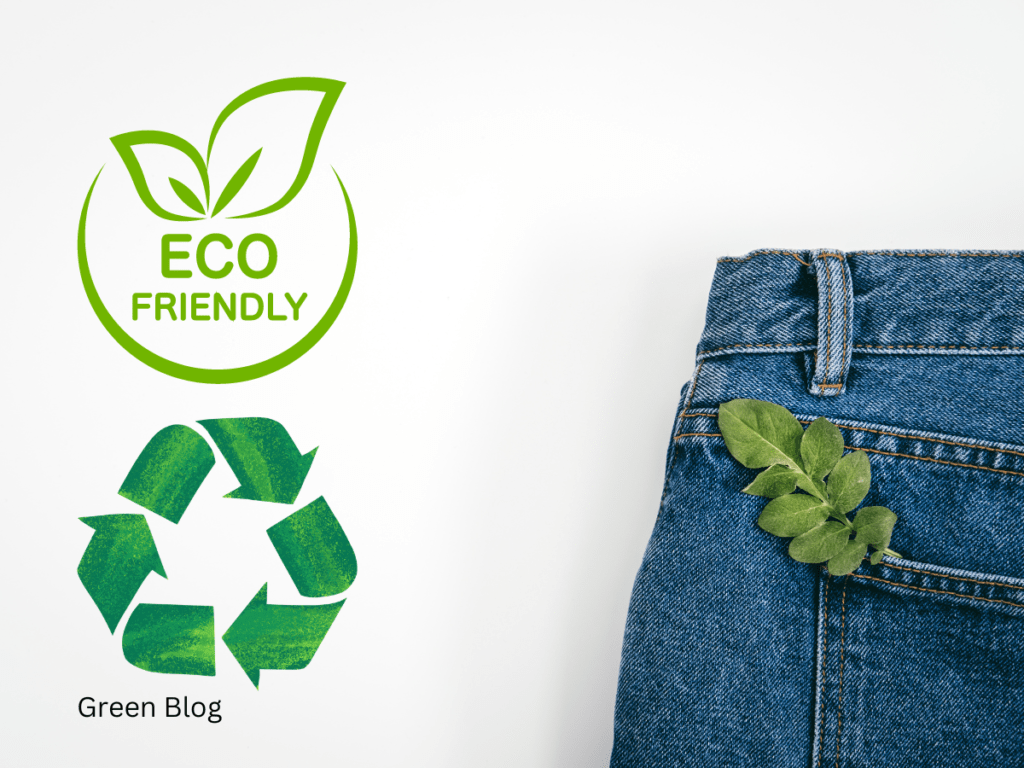1. Introduction
Living sustainably is more important than ever as we face the challenges of climate change and environmental degradation. Adopting a sustainable lifestyle not only helps protect the planet but also promotes a healthier and more mindful way of living. One of the most effective ways to reduce our environmental impact is by choosing eco-friendly products. These products are designed to minimize waste, conserve resources, and reduce pollution. This blog post explores the top eco-friendly products for a sustainable lifestyle in 2024, covering various categories such as home, fashion, technology, transportation, and food. By incorporating these products into your daily life, you can make a significant contribution to environmental sustainability and inspire others to do the same.
2. Eco-friendly Home Products
Our homes are where we can make some of the most impactful changes towards sustainability. There are numerous eco-friendly products available that help reduce waste and conserve resources.
Sustainable Cleaning Products
Traditional cleaning products often contain harmful chemicals that can pollute water sources and harm wildlife. Switching to sustainable cleaning products is a simple yet effective way to reduce your environmental footprint. Look for biodegradable, non-toxic, and plant-based cleaners that come in recyclable packaging. Brands like Seventh Generation, Ecover, and Method offer a range of eco-friendly cleaning solutions that are just as effective as their conventional counterparts but much kinder to the planet.
Energy-efficient Appliances
Energy-efficient appliances are a cornerstone of a sustainable home. These appliances use less electricity and water, reducing both your utility bills and your environmental impact. When shopping for new appliances, look for those with the ENERGY STAR label, which signifies that the product meets strict energy efficiency guidelines set by the Environmental Protection Agency. Examples include energy-efficient refrigerators, washing machines, and dishwashers. Additionally, consider installing smart thermostats and LED lighting to further reduce energy consumption.

Reusable Household Items
Single-use items contribute significantly to landfill waste and pollution. Replacing them with reusable alternatives can make a big difference. Some top reusable household items include stainless steel water bottles, silicone food storage bags, and cloth napkins. Products like Beeswax wraps can replace plastic wrap for food storage, and reusable shopping bags can cut down on plastic bag use. By investing in these products, you not only save money in the long run but also help reduce the amount of waste that ends up in landfills and oceans.
Case Studies or Examples
A great example of eco-friendly home products in action is the zero-waste lifestyle movement. Individuals and families who adopt zero-waste principles use products like reusable glass jars for bulk shopping, compostable dish sponges, and DIY cleaning solutions. This approach significantly reduces household waste and promotes a more mindful consumption pattern. Blogs and social media accounts dedicated to zero-waste living provide inspiration and practical tips for incorporating these products into everyday life.
3. Sustainable Fashion and Personal Care
Fashion and personal care industries have a significant environmental impact, but many brands are now offering sustainable alternatives.
Eco-friendly Clothing Brands
The fashion industry is known for its high environmental cost, but eco-friendly clothing brands are changing the game. These brands use sustainable materials like organic cotton, bamboo, and recycled fabrics. They also implement ethical production practices, ensuring fair wages and safe working conditions for their workers. Brands like Patagonia, Eileen Fisher, and Reformation are leading the way in sustainable fashion. By choosing eco-friendly clothing, you support a more sustainable and ethical fashion industry.

Sustainable Personal Care Products
Personal care products, including skincare, haircare, and cosmetics, often contain harmful chemicals and are packaged in non-recyclable materials. Sustainable personal care products use natural and organic ingredients and come in eco-friendly packaging. Brands like Lush, Dr. Bronner’s, and The Body Shop offer a wide range of sustainable personal care products. These products are not only better for the environment but also gentler on your skin and overall health.
Benefits of Natural and Organic Ingredients
Natural and organic ingredients in personal care products offer several benefits. They are free from synthetic chemicals, parabens, and artificial fragrances, which can cause skin irritation and other health issues. Organic ingredients are grown without the use of pesticides and fertilizers, reducing the environmental impact of farming. Additionally, many natural ingredients have therapeutic properties that nourish and protect the skin. For example, aloe vera, coconut oil, and shea butter are commonly used in natural skincare products for their moisturizing and healing properties.
Case Studies or Examples
The rise of sustainable beauty influencers has helped promote eco-friendly personal care products. Influencers like Zero Waste Cartel and Sustainably Chic share reviews and recommendations for sustainable beauty brands, making it easier for consumers to make informed choices. Their platforms highlight the importance of reducing plastic waste and choosing products that are kind to both the environment and our bodies.
4. Green Technology and Gadgets
Technology and gadgets can also contribute to a more sustainable lifestyle by reducing energy consumption and promoting eco-friendly practices.
Solar-powered Devices
Solar-powered devices are an excellent way to harness renewable energy and reduce reliance on fossil fuels. Solar chargers for phones and other small electronics are becoming increasingly popular, offering a convenient and sustainable way to keep your devices powered up. Solar-powered lights, such as garden lights and lanterns, are also great additions to any eco-friendly home. These products help reduce electricity usage and lower your carbon footprint.
Energy-efficient Electronics
Energy-efficient electronics are designed to use less power without compromising performance. Look for products with the ENERGY STAR label, which indicates that they meet energy efficiency standards. Energy-efficient laptops, monitors, and smart home devices can significantly reduce your energy consumption. Additionally, unplugging electronics when not in use and using power strips can help minimize energy waste.
Innovative Green Tech Products
Innovative green tech products are continually emerging, offering new ways to live sustainably. For example, smart irrigation systems for gardens and lawns use sensors and weather data to optimize water usage, reducing waste. Eco-friendly gadgets like water-saving showerheads and smart thermostats help conserve resources and lower utility bills. Staying updated with the latest green tech innovations can help you make more sustainable choices in your everyday life.
5. Eco-friendly Transportation
Transportation is a major source of carbon emissions, but there are eco-friendly options available that can help reduce your environmental impact.
Electric Vehicles
Electric vehicles (EVs) are becoming more popular as a sustainable alternative to traditional gasoline-powered cars. EVs produce zero emissions, reducing air pollution and greenhouse gas emissions. Advances in battery technology have improved the range and affordability of EVs, making them a viable option for more people. Brands like Tesla, Nissan, and Chevrolet offer a range of electric cars to suit different needs and budgets. By choosing an electric vehicle, you contribute to cleaner air and a healthier environment.
Bicycles and E-bikes
Bicycles and e-bikes are excellent eco-friendly transportation options for short commutes and leisurely rides. They produce no emissions and provide the added benefit of physical exercise. E-bikes, which come with an electric motor to assist with pedaling, are particularly useful for longer distances or hilly terrain. They offer a sustainable and cost-effective alternative to driving, helping to reduce traffic congestion and air pollution. Investing in a good-quality bicycle or e-bike can significantly lower your transportation carbon footprint.
Public Transportation and Car-sharing
Using public transportation and car-sharing services can also help reduce your environmental impact. Public transit systems like buses, trains, and subways are more energy-efficient and produce fewer emissions per passenger compared to individual cars. Car-sharing services like Zipcar and ride-sharing apps like Uber Pool allow you to share rides with others, reducing the number of vehicles on the road. These options provide convenient and sustainable alternatives to owning a car.
6. Sustainable Food and Drink
Making eco-friendly choices in your diet is another important aspect of a sustainable lifestyle. Opting for organic, locally sourced, and plant-based foods can significantly reduce your environmental impact.
Organic and Locally Sourced Food
Organic farming practices avoid the use of synthetic pesticides and fertilizers, promoting healthier soil and reducing pollution. Buying organic food supports these sustainable practices and reduces your exposure to harmful chemicals. Locally sourced food has a lower carbon footprint compared to food that has been transported long distances. Farmers’ markets and community-supported agriculture (CSA) programs are great ways to access fresh, local produce. By choosing organic and locally sourced food, you support sustainable agriculture and reduce your environmental impact.
Plant-based Products
The production of plant-based foods generally requires fewer resources and produces fewer emissions compared to animal-based products. Incorporating more plant-based meals into your diet can significantly reduce your carbon footprint. There are numerous delicious and nutritious plant-based alternatives available, from meat substitutes like Beyond Meat and Impossible Foods to dairy-free milk, cheese, and yogurt options. Adopting a plant-based diet not only benefits the environment but also promotes better health.
Eco-friendly Packaging
Eco-friendly packaging is an important consideration when choosing food and drink products. Look for products packaged in recyclable, compostable, or reusable materials. Avoid single-use plastics and opt for items with minimal packaging. Brands that prioritize sustainable packaging, such as those using glass, paper, or biodegradable materials, contribute to reducing plastic pollution and waste. Making mindful choices about packaging can help reduce your environmental impact and support sustainable practices.
7. Conclusion
Incorporating eco-friendly products into your daily life is a powerful way to contribute to environmental sustainability. From home and personal care items to technology, transportation, and food, there are numerous options available to help you live a more sustainable lifestyle. By making conscious choices and supporting brands that prioritize sustainability, you can reduce your environmental footprint and inspire others to do the same. Adopting a sustainable lifestyle is not only beneficial for the planet but also promotes a healthier and more mindful way of living. As we move forward, it is essential to continue seeking out and embracing eco-friendly products and practices for a better, more sustainable future.
8. References and Further Reading
- “The Zero Waste Home: The Ultimate Guide to Simplifying Your Life by Reducing Your Waste” by Bea Johnson
- “Sustainable Home: Practical Projects, Tips and Advice for Maintaining a More Eco-Friendly Household” by Christine Liu
- “The Conscious Closet: The Revolutionary Guide to Looking Good While Doing Good” by Elizabeth L. Cline
9. Suggestions for further reading on eco-friendly products:
- “Plastic-Free: How I Kicked the Plastic Habit and How You Can Too” by Beth Terry
- “The Sustainable(ish) Living Guide: Everything You Need to Know to Make Small Changes that Make a Big Difference” by Jen Gale
- “Eat for the Planet: Saving the World One Bite at a Time” by Nil Zacharias and Gene Stone
